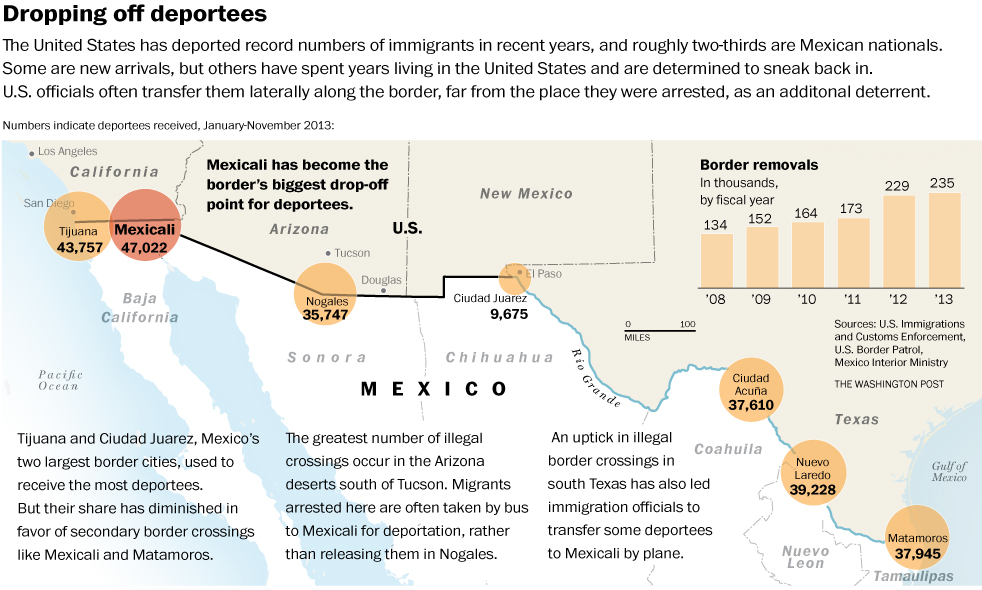A recent Washington Post article – Mexicali has become Mexico’s city of the deported as U.S. dumps more people there – highlights the fact that Mexicali now has the dubious distinction of receiving more deportees from the USA than any other Mexican border city.
As the article points out, “Once, border cities like Mexicali (population 700,000) were flooded with newcomers trying to go north. Today, they are filling with obstinate deportees, cut off from U.S.-born children, jobs and car payments, adrift in a kind of stateless purgatory that is beyond the United States but not really in Mexico either. They face a U.S. border that is tougher and more expensive to cross than ever.”
The U.S. Immigration and Customs Enforcement (ICE) agency deported more than 400,000 migrants in the 2012 fiscal year, and close to 370,000 in 2013, about two-thirds of them to Mexico. Mexican government statistics for that time frame show that more than 110,000 were “repatriated” to Mexicali, even though it was not their point of origin, or even the closest Mexican border city to where they were detained.
According to the Mexican Ministry of Foreign Affairs (SRE) the deportees from the USA in 2012 included 13,454 unaccompanied Mexican minors under the age of 18.
This Washington Post graphic (click image to enlarge) neatly summarizes the situation.
The Washington Post article makes for some sober reflections on the plight of many of those deported from the USA, especially those individuals who have very strong family ties to that country.
The longer term social effects of such deportations are the focus of this article by Joanna Dreby, assistant professor of sociology at the University of Albany, State University of New York.
Related posts:
- Mexican migrants and remittances: an introduction (with dozens of links to other posts)
- The Transnational Metropolitan Areas of Mexico-USA
- Deported migrants set up home in Tijuana canal
- Recent trends for Mexicans living in the USA (Jul 2013)
- Updated facts and figures for the Mexican diaspora in the USA (Aug 2011)

Sorry, the comment form is closed at this time.